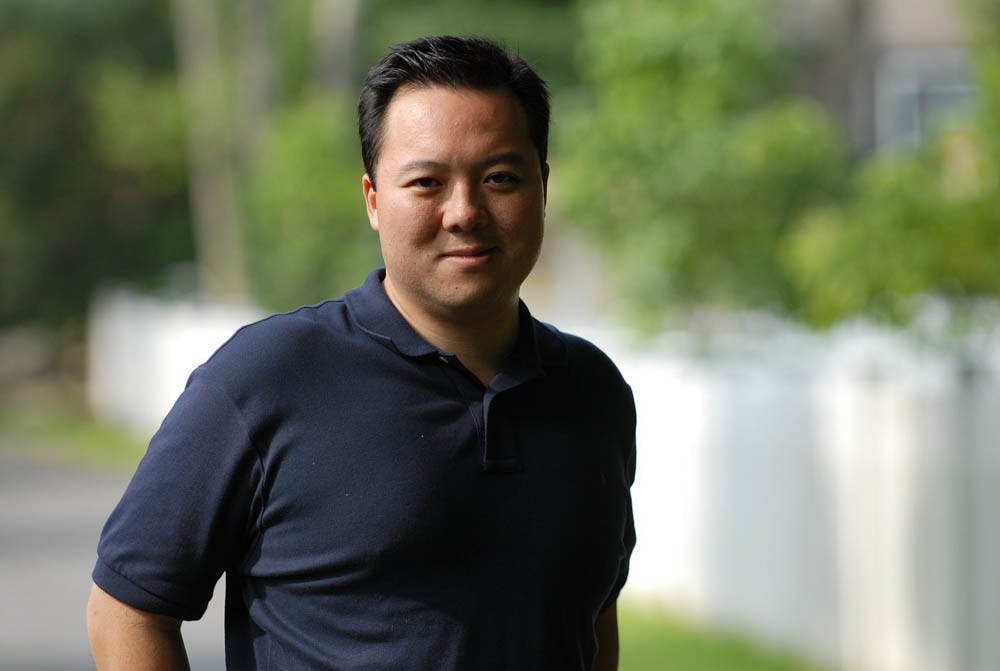In the early hours of Nov. 16, William Tong ’95 won the race to be Connecticut’s attorney general. After he is sworn in next January, Tong will be Connecticut’s first-ever Asian-American constitutional officer, the country’s second elected Asian-American state attorney general and the first elected Chinese-American state attorney general.
This year’s contentious race for Connecticut attorney general featured five Democratic candidates, two Republican candidates and at least one third-party candidate. While Connecticut rarely holds a Democratic primary for the position, this year’s election included one because of the large number of candidates. Tong won the primary by a margin of 31.4 percent.
In the general election, Tong won by 5.7 percent, a tight margin that he partially attributes to the state’s highly contested gubernatorial race, which focused on fiscal concerns and energized pro-Trump opposition.
When asked why his platform resonated with voters, Tong said, “For a lot of people in Connecticut, we feel like our way of life is under attack. … I’m the son of immigrants, and people recognize that immigrants are under attack. I’m the son of small business people, and small business people are under attack. This is a fight for me and my family.”
To that end, Tong plans to expand existing initiatives like consumer protection and continue national endeavors established by incumbent attorney general George Jepsen. Current projects include addressing the opioid epidemic, tackling generic drug price fixing and holding large banks accountable for financial wrongdoing.
In addition, Tong said he would like to establish a civil rights division within the attorney general’s office. Currently, Connecticut’s attorney general can only defend the state from accusations of civil rights violations. By using the models set by New York and Massachusetts, Tong wants to create a department charged with “taking action on behalf of Connecticut residents whose civil rights have been violated.”
To expand the attorney general’s role, Tong will need permission from the state’s legislature, but he is confident that he will receive the necessary support.
Citing the current political climate, Tong said he felt compelled to run for the position because “state attorneys general have become the first line of defense against the Trump administration. … This feels like an existential moment in our democracy.”
Prior to his run, Tong established a long track record of advocating for progressive policies in Connecticut, particularly in his role as a state representative.
While chairing the state’s Judiciary Committee, Tong passed laws to fight hate crimes, promote criminal justice reform and implement gun regulations. “Our state’s gun laws are my responsibility,” Tong said. “I see it both as an honor and obligation, especially since Connecticut has the worst relationship you can have with gun violence,” he added, referencing the 2012 Newtown school shooting. Though many of his initiatives successfully passed through the state legislature, a bill intended to regulate ghost guns and 3-D printed guns failed last year.
Tong’s experience and values ultimately resonated with voters, Jepsen said. He added that Tong’s private sector background with complex civil litigation made him a highly qualified candidate.
Woo Lee ’95, a childhood friend of Tong and a deputy chief in the Department of Justice’s Money Laundering and Asset Recovery Section, emphasized the role that Tong’s family background played in shaping his candidacy for state attorney general. “I remember when I would go over … for a playdate (and) it would be at his family’s restaurant,” Lee said. “We would see his parents working, it was long hours, it was hard work. … All of those experiences bring something to the table.”
Connecticut’s Office of the Attorney General handles over 54,000 cases a year across 15 different fields of law, including environmental regulations, data security and privacy, consumer protection and finance, Jepsen said.
“The Connecticut attorney general has virtually no criminal jurisdiction. … We are exclusively civil law enforcement officers,” he added. “The Office of the Attorney General’s greatest strength is its credibility. It’s very important to have a reputation of integrity that you are not twisting the law to suit a political agenda.”
Though state attorneys general have varying powers and responsibilities depending on the state, they frequently collaborate, Jepsen said. “On a bipartisan basis, states’ attorneys general work well together on a national level,” he added.
As the transition from Jepsen to Tong’s administration approaches, it remains to be seen how much the office itself will change. Jepsen said maintaining national investigations is important because “stepping up and providing leadership in these cases … can be very helpful to the state. … As a leadership state, you also get a bigger share of the settlement.” For instance, one share that Connecticut received from a national settlement exceeded the attorney general office’s entire budget, Jepsen added.
But ultimately, “it is important for (Tong) to chart his own course,” Jepsen said.
Correction: An earlier version of this article incorrectly state that William Tong ’95 is the country’s second Asian-American state attorney general. In fact, Tong is the country’s second elected Asian-American state attorney general. The Herald regrets the error.





